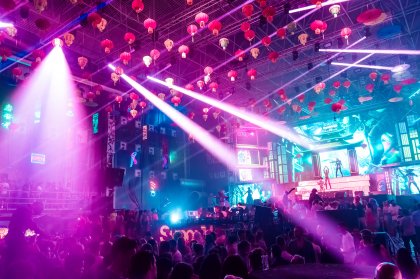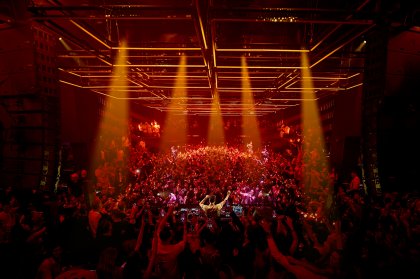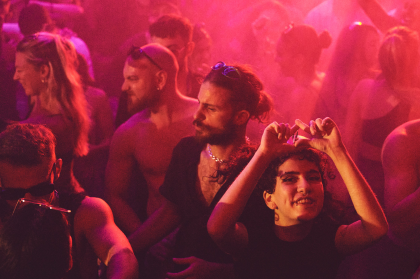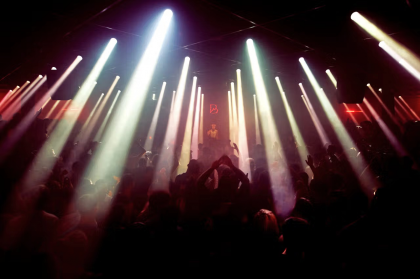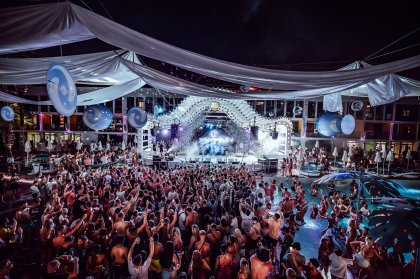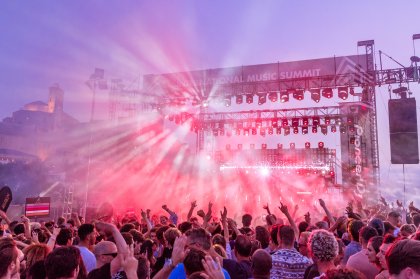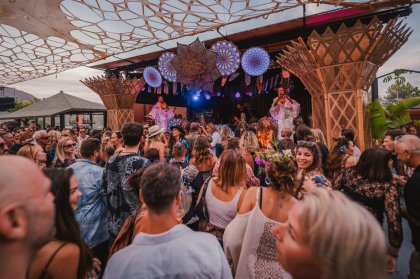This season sees Get Physical heads M.A.N.D.Y begin their seminal residency on the island. Held within the panoramic confines of Privileges Vista Club alongside Vista Blue the party is a friendly accessible affair with a philanthropic heart. After touring the world with a future-bound live show, knitting together compilations for the likes of Fabric and the 'At The Controls' series and releasing a plethora of body-shaking hits on their label - the Germans attentions are shifting.
Every artist reaches a point in their career where a desire to curate, educate and nurture seems to inexplicably manifest itself. The Get Physical label has always been a welcome home for music that refuses to follow the ever-shifting trends and fads of the public at large - it is reflected in the artists themselves and a philosophy that grooving, quality sound can be interpreted as a lifestyle beyond the techno club. With their residency M.A.N.D.Y - who is Patrick Bodmer and Philip Jung - look to make a unique mark on the island, on its patrons and on the artists they are presenting.
Taking place every Tuesday, the party will run until September 24th with M.A.N.D.Y playing every date. It shall present a mix of new and old accomplices ranging from Steve Bug and Booka Shade to bright sparks Wankelmut and Blond:ish. The Vista Blue room shall host a rarer sound with label showcases from Exploited, Free Range Records, KaterMukke and Cityfox among others.
I caught up with M.A.N.D.Y's Philipp Jung ahead of Get Physicals' second outing at the Vista Club for a discussion on musical spirituality, culture, taking the fatherly role and the duos aims for the summer and beyond:
You reference in your residency manifesto that the island 'is about to experience a powerful regeneration-process'. Some feel the scene was in danger of losing its way due to the long dominance of a small number of large brands. Do you feel that it is important for the more underground, embedded labels such as yourselves to re-assert their values and position to a new generation of clubbers - is this the aim of your residency?
"You do stuff out of a gut feeling. You want to - and have to - present your vision of the music to a crowd on the island that is not normally exposed to this kind of stuff."
"We have been given this amazing playground and complete freedom and are especially excited about the smaller room, the Vista Blue. We want to show very different music - the kind that is not shown on the island so much. It is important that people experience a whole spectrum of music. Even if there are only 10 people there, they talk to their friends, and they talk to their friends. This is how techno started; this is how any kind of music started."
Did you always have Privilege in mind?
"The main room is more for big themes and big productions - it is good, but it is not our style. For us it was always the Vista and the Coco Loco, or Music box as it was. We always felt a very strong connection to this part of Privilege. In the end for Patrick and myself it is very important that you can actually feel that you are on the island. Some of the other clubs are really dark, and it's great, but this is something I always have in my life and here on the island I want to have something bright. I want to see where I am."
Discussing the spirit and atmosphere on the island. Many people come here for different reasons. How do you think the crowd on the island differs from say, an audience in mainland Europe?
"It's for the good and for the bad I think. You have all these different people from all these different places. It's a unique and great energy. But to go out - because of the pricing in the clubs - everyone is stretching themselves to pay so much. It is a bit like New Years Eve, everyone expects so much from the night. It has to be the best night of your life. The best atmosphere; the best music; you have to meet the best people. There is this tension in the air."
With your parties you are bringing a lot of new talent and people that would never normally play on the island, what do you think these new faces can bring to the scene and to the parties?
"We are not like Andrew Weatherall, you know, who is a real music intellectual. We always try to challenge ourselves - and the people. It depends on the DJ - the way he sees and feels the crowd. The crowd can be so heterogeneous that it demands a little bit more from the artists - you have to bring them together and this can't happen when you play your most eclectic set. I think it's a good school for DJs - to feel this kind of pressure - and to have the opportunity to prove themselves in such an environment."
Is taking and developing these new artists an aspect of the label and your parties that you are particularly interested in and enjoy doing?
"You learn from them. There is this exchange - you have given something to them with the label platform and your experience - whilst from them you get this freshness - a different approach: how you sit in the studio; how you approach a DJ set. This is why we do it. There can't be any other reason because with the label we can't make any money. To see them in action, to see how much they love it, how they're struggling, they're fears, where they're good. You get to know people on this next level, a more personal level."
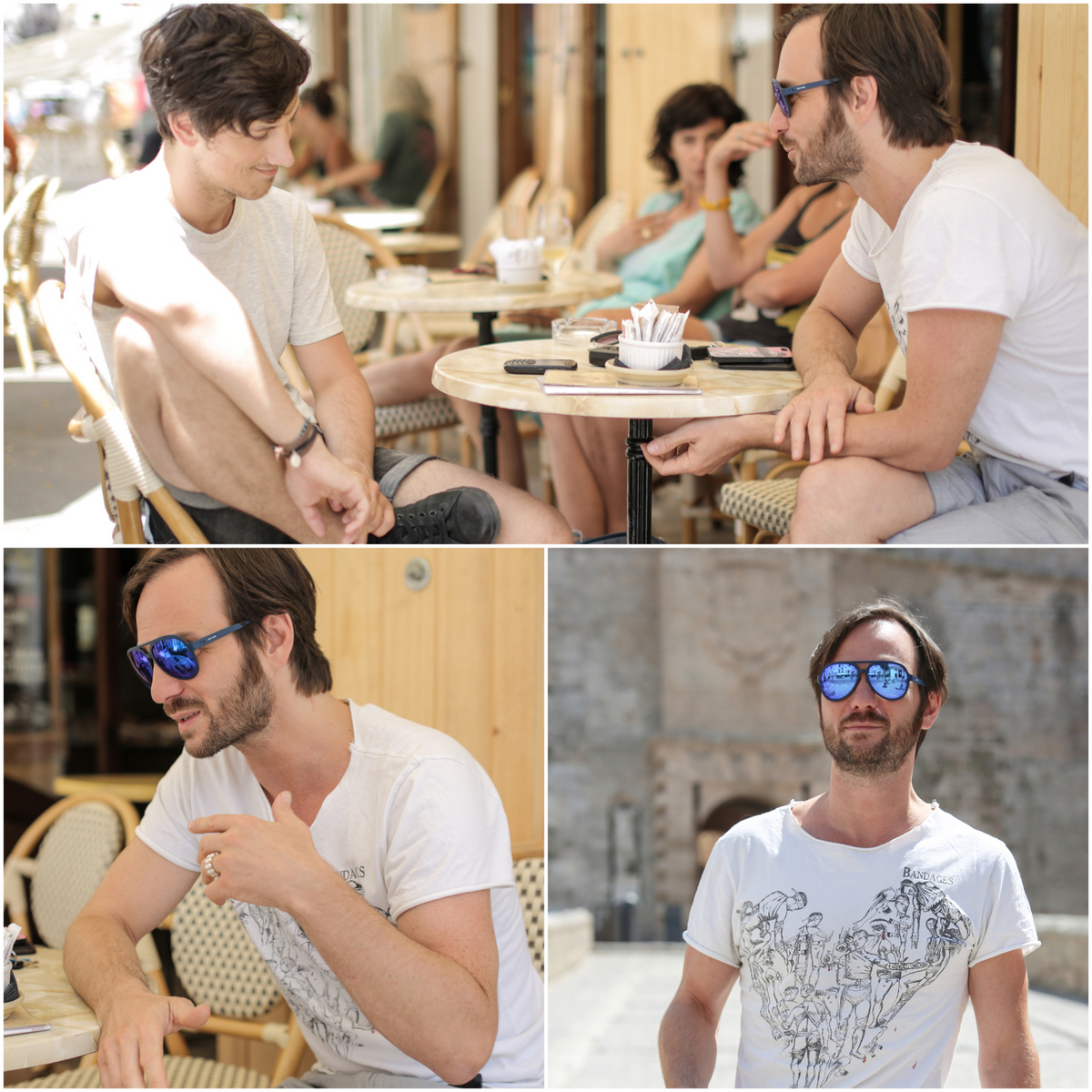
Throughout your residency you are presenting many Label Showcases - how did you decide which labels to bring out?
"They are mainly labels that we play out ourselves. They have a history, they are not super big, but they will be. For me, it is interesting to see the first time they are bringing all their label acts together - and [to see] the sound this creates - to hear their view on things. It may sound egotistical, but it is also an experience for us."
Do you have any thoughts or ideas of how you'd like people to feel coming away from your party? Is it that they are part of this 'friends and family atmosphere'?
"Yes - part of this friendly vibe. We do not have very much decoration or production. We have some nice dancers and we put them in nice dresses - not too sexy. We don't want to detract from the music. We tried to concentrate on nice bookings and create a cohesive concept. People come from all over the world - from Peru to Chile to Korea - and I think it is a wonderful challenge - to try and unite them."
Do you think that your brand of more grooving house is more suited to the island than say - another more 'banging' style?
"It is difficult. With our kind of music people can dance the whole night without having endless drops and chord changes every few seconds. If you are sober you can still listen [to it] and enjoy it. I get the impression that with a lot of places you almost have to be high to enjoy [the night]. I don't need this super crazy energy, I like the deepness, but it must be accessible to everyone. There is always a way to get a party going. With the [Vista Club] space; it is bright; it is outside - so you can't even get too dark. When you have the sun coming up I don't want to be making a dark and driving mood. It just isn't us."
Where many people have a following and a style based around a particular genre or mood, you are known for consciously being varied, ambivalent and unexpected. Why do you think people enjoy and react to this?
"In the beginning it was a disadvantage because people never knew what we were going to play - we didn't even know ourselves. Now that we have found our direction and style, we get so much feedback - that people really enjoy it if they never hear the same sound twice. Every set is prepared in a different way. What is the crowd like, what is the time, who is the DJ before - we customise it. When we were doing our live act after the tenth time we looked at each other and thought 'this is not us, we cannot play the same tracks'. It is not in our DNA."
Do you find that you are entering a new phase in you career as artists and musicians?
"We are running behind with our schedule. We now finally have 7 or 8 tracks ready that we wanted to finish but with our residency and gigs schedule we shall miss the Fall release. We have our own tracks, a couple of remixes, and on the Ibiza Compilation there is a new track. The production side does suffer. There are some DJs that do not even produce any more at all. You lose 'it' if you don't produce for two or three years - you will never be able to achieve what you have in your mind so you'd rather stop doing it. Our lives need to be planned."
After this whirlwind of activity, do you think you will ever go back into this hyper-productive, live project phase? Or have you moved beyond this now?
"I think we shall progress mainly as a DJ team. We have decided that [doing the live project] is not so much us. I would like in the future to have one weekend off a month to get back into the studio - and not think about techno. Creativity does not come from the club or from travelling. It comes from being with friends, having a good meal or having a walk in the forest."
So creatively speaking - your influences lie outside of the electronic scene?
"Walking around here, where we sit now, looking at beautiful houses and strolling around in the Old Town. Seeing an old grandma doing some art-craft. It interests me. So many people go to a museum because they feel as if they have to go to a museum - even though they know nothing about the artist or the material. It is stupid. I'd rather go to a bar, order a coffee, and look at the people - you learn so much more about a culture by looking at the people and not going to a museum because you think you have to. You must get out of there and let other stuff influence you. It is much more interesting and it reflects in the music."
